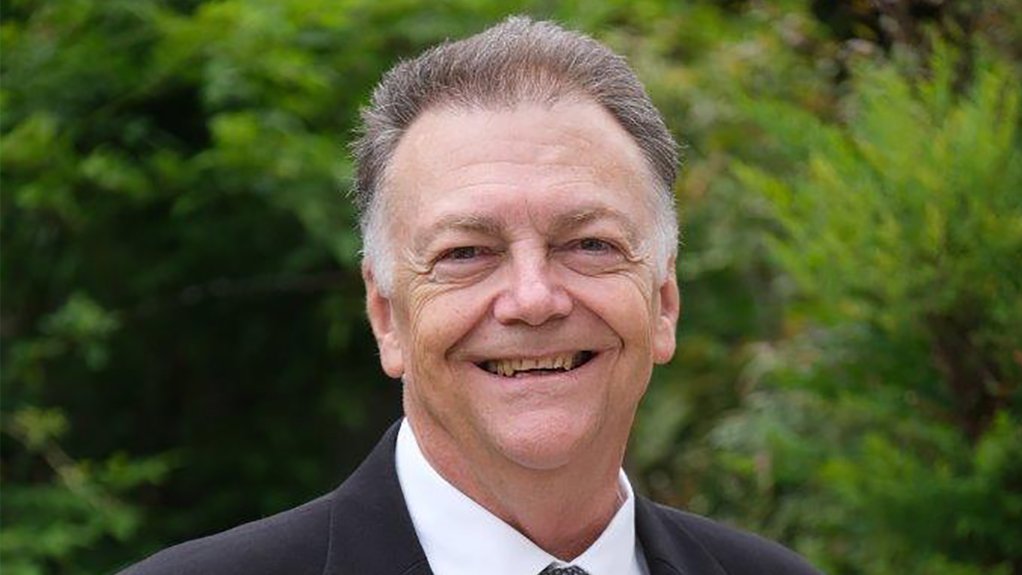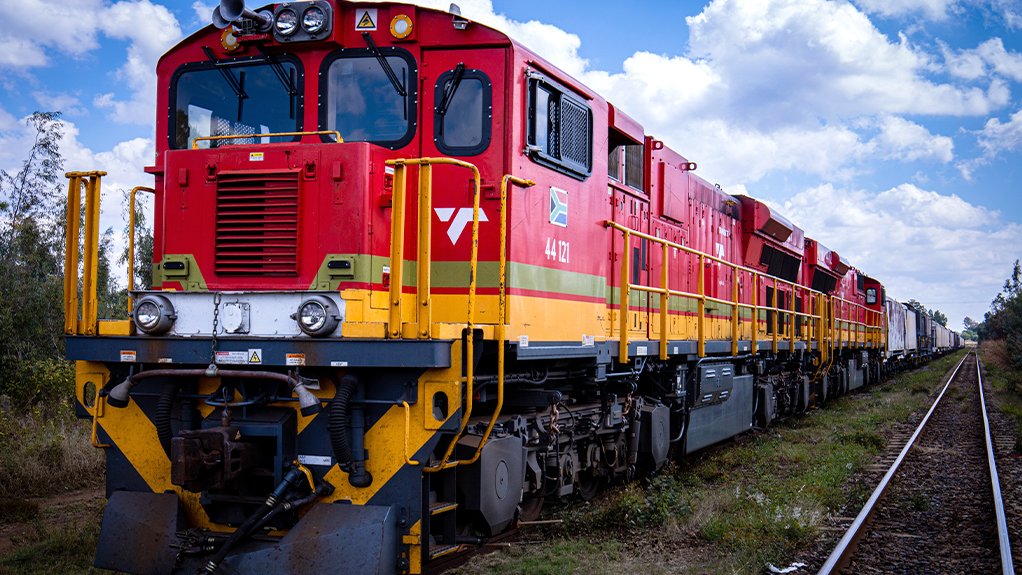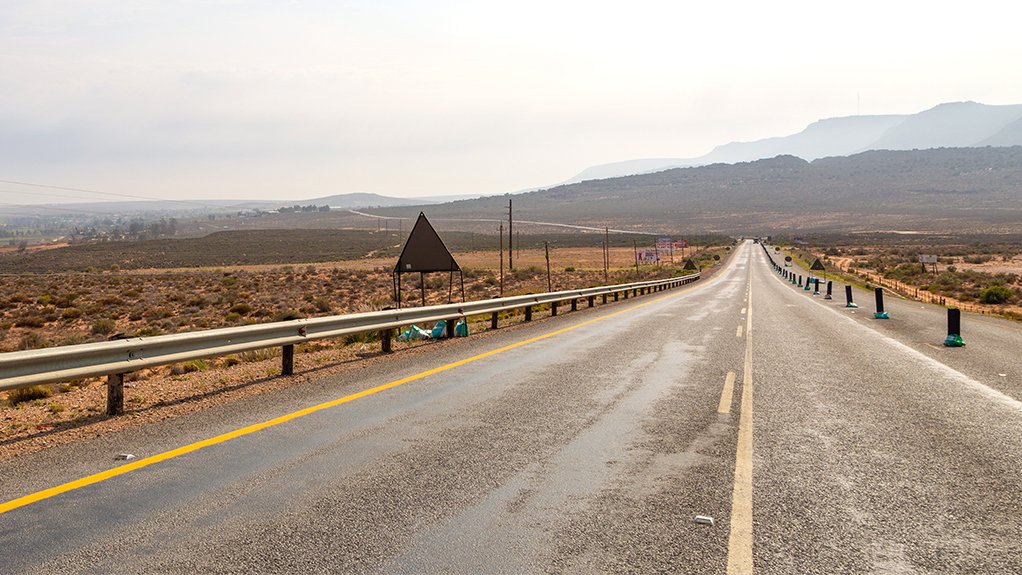Mindset change a must for effective PSP




STEVEN KAPLAN Without the political will, there is little that the private sector can do to address the shortcomings in the operation and maintenance of State infrastructure
RAIL REVIVAL The urgent and fast-paced implementation of policy is key to speed up the revival South Africa’s rail infrastructure
STANDARDISE STRATEGY Road expenditure is being prioritised by all the country’s provinces and authorities, but the lack of a standard methodology to guide maintenance schedules is resulting in the adoption of significantly different approaches
Effective public-sector participation (PSP) in the funding, management, operation and maintenance of South Africa’s depreciating road, rail and port infrastructure requires a mindset change by those in power, says industry body South African Institution of Civil Engineering (SAICE) president Steven Kaplan.
“The principal factors influencing the deterioration of our infrastructure are poor to ineffective planning, deficient execution, substandard operational and life-cycle maintenance, and criminality leading to corruption and infrastructure theft.”
Consequently, momentum around the National Framework towards Professionalisation of the Public Sector, published in October last year, needs to grow, Kaplan emphasises.
He highlights that greater private-sector involvement is inevitable and suggests that the extensive world-class experience and skills of the country’s private sector be leveraged forthwith by enhancing the relationship between the public and private sectors to allow for better collaboration, within the bounds of relevant legislation.
“Legislation – the National Infrastructure Plan and the pending National Rail Policy, which detail PSP – aims to speed up the revival of rail. But the urgent and fast-paced implementation of policy is key,” says Kaplan.
While the private sector is willing to offer engineering skills, knowledge, project management and investment in road and rail infrastructure; the capacity, capability and reputation of South Africa’s rail sector and State-owned entities has been tarnished by corruption.
“Therefore, private investors are wary, demanding guarantees and risk-mitigating strategies. Trust in government will grow only where it proves its ‘commitment to improvement’”, states Kaplan.
Transnet, for example, has encouraged PSP, with Transnet National Ports Authority issuing various requests for information related to renewable energy and desalination, and plans for the new Boegoebaai port, in the Northern Cape, which include “some aggressive timelines for implementation”.
Consequently, innovative business models for private-sector involvement may be required, he advises.
Infrastructure Report Card
“While South Africa has received the lowest rating ever since the launch of SAICE’s first infrastructure report card (IRC) in 2006, the country’s economic infrastructure (which makes business activity possible) actually remains in a satisfactory condition, except for State-owned power utility Eskom’s electricity generation fleet. However, our social infrastructure, which supports basic community needs, continues to deteriorate,” states Kaplan.
Although, freight that is more ideally suited to rail continues to be transported by road hauliers, owing to a lack of freight rail capacity and capability, he notes.
The increased pressure on the performance of South Africa’s land freight transportation significantly expedites the deterioration of the country’s national road infrastructure and increases the costs of goods transported.
While the country’s national road infrastructure is generally in a good condition, sooner or later, it will require a major investment to ensure sustainability, Kaplan advances.
“Road expenditure is being prioritised by all the country’s provinces and authorities, but the lack of a standard methodology to guide maintenance schedules is resulting in the adoption of significantly different approaches.”
Reinforce Rail
The poor performance of the rail export corridors, especially the Richards Bay coal corridor, has resulted in significant loss of revenue for mines and foreign exchange to the fiscus, says Kaplan, highlighting that modelling estimates that this costs the South African economy almost R400-billion, or 6%, of its gross domestic product (GDP).
“A critical solution will be the identification of a core rail network and the establishment of a single infrastructure agency for rail such as the South African National Roads Agency Limited (Sanral). This dedicated agency can then sell slots from a well-maintained railway to private operators in the same way as Sanral collects tolls. Government and development funding will be required to get this off the ground.”
Plans are underway to then introduce competition in the rail sector by allowing for third-party operator access to the rail system on certain corridors.
“This process is being cautiously implemented over time and the first stages of access have been awarded to a private operator,” states Kaplan.
Prioritise Ports
Further, more effective infrastructure asset management implementation is required for South Africa’s ports.
“This mainly involves aspects such as ship-to-shore cranes and rubber tyre gantries. While this equipment is not typically considered to be civil infrastructure, its function has an impact on the continued operation and growth of the ports,” explains Kaplan.
When the backlog becomes too extensive, however, it is difficult to fund and implement maintenance, which is exacerbated by the current economic climate.
The condition of local rail and port infrastructure is hindering export and import activity, lowering the country’s GDP and affecting the economy, he states, emphasising that the revitalisation of this infrastructure, and improvement of the country’s future, depends on proper and data-driven investment in infrastructure.
“My mission for 2023, as the SAICE president, is to use the IRC as leverage to target audiences with the decision-makers responsible for prioritising resource and budget allocations relating to maintenance management, renewal and planning for new infrastructure.”
New and emerging government policies are paving the way for greater PSP development, but increased political will and dealing with vested interests are needed to correct the decline of South Africa’s infrastructure, says Kaplan.
“Without the political will, there is little that the private sector can do to address the shortcomings in the operation and maintenance of State infrastructure. Yet, slow decision-making, institutional capability, cumbersome processes and lack of urgency to implement policy hinder the achievement of progress at pace.”
Article Enquiry
Email Article
Save Article
Feedback
To advertise email advertising@creamermedia.co.za or click here
Press Office
Announcements
What's On
Subscribe to improve your user experience...
Option 1 (equivalent of R125 a month):
Receive a weekly copy of Creamer Media's Engineering News & Mining Weekly magazine
(print copy for those in South Africa and e-magazine for those outside of South Africa)
Receive daily email newsletters
Access to full search results
Access archive of magazine back copies
Access to Projects in Progress
Access to ONE Research Report of your choice in PDF format
Option 2 (equivalent of R375 a month):
All benefits from Option 1
PLUS
Access to Creamer Media's Research Channel Africa for ALL Research Reports, in PDF format, on various industrial and mining sectors
including Electricity; Water; Energy Transition; Hydrogen; Roads, Rail and Ports; Coal; Gold; Platinum; Battery Metals; etc.
Already a subscriber?
Forgotten your password?
Receive weekly copy of Creamer Media's Engineering News & Mining Weekly magazine (print copy for those in South Africa and e-magazine for those outside of South Africa)
➕
Recieve daily email newsletters
➕
Access to full search results
➕
Access archive of magazine back copies
➕
Access to Projects in Progress
➕
Access to ONE Research Report of your choice in PDF format
RESEARCH CHANNEL AFRICA
R4500 (equivalent of R375 a month)
SUBSCRIBEAll benefits from Option 1
➕
Access to Creamer Media's Research Channel Africa for ALL Research Reports on various industrial and mining sectors, in PDF format, including on:
Electricity
➕
Water
➕
Energy Transition
➕
Hydrogen
➕
Roads, Rail and Ports
➕
Coal
➕
Gold
➕
Platinum
➕
Battery Metals
➕
etc.
Receive all benefits from Option 1 or Option 2 delivered to numerous people at your company
➕
Multiple User names and Passwords for simultaneous log-ins
➕
Intranet integration access to all in your organisation



















